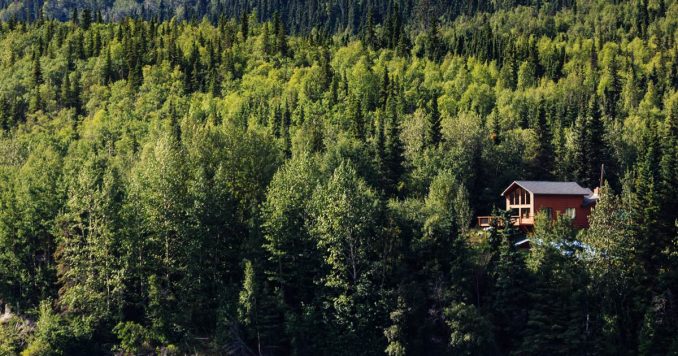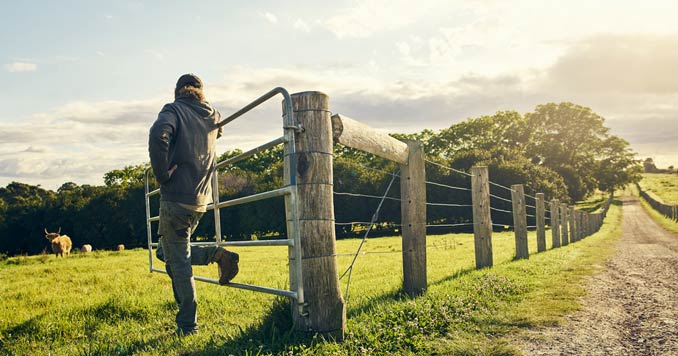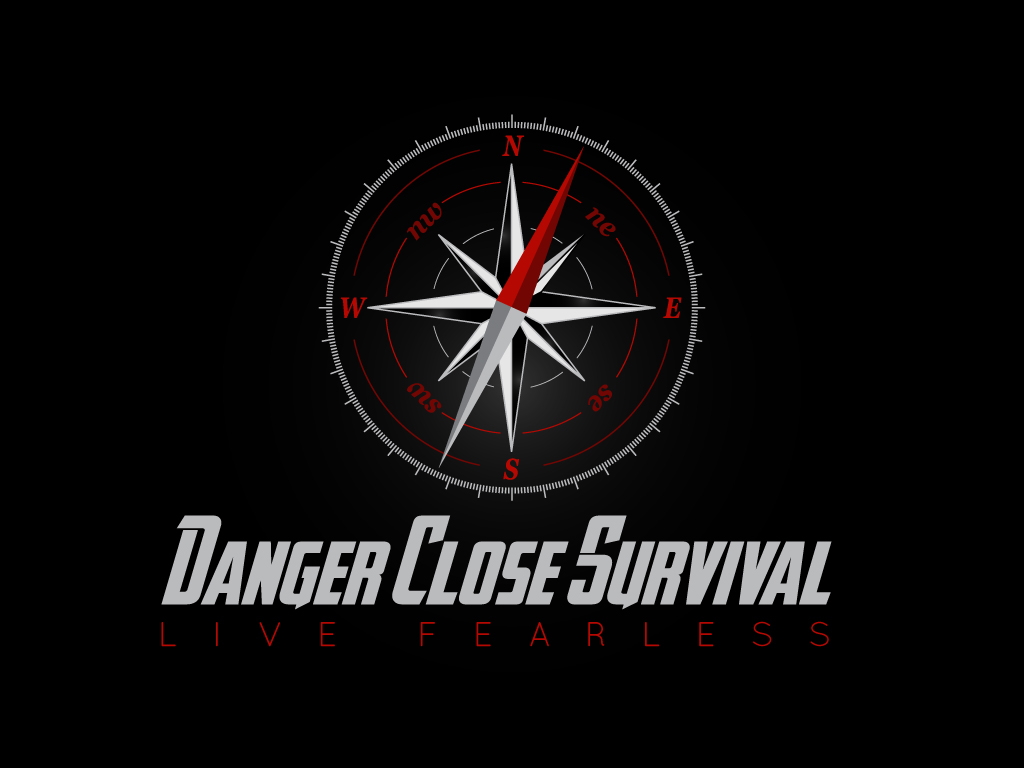Top Off Grid States: The Best Places in America to live Off The Grid

It’s hard to imagine the collapse of civilization but the end of the world as we know it, commonly known as TEOTWAKI among preppers, is something that should be on everyone’s mind. It could happen over time, with economic calamity leading to the collapse of world banks and stock markets before causing large-scale panic, or it could be something unexpected, like a nuclear attack or the outbreak of a disease.
No matter how it happens, you need to be prepared for whatever comes your way, and that means you need a plan.
At the top of the list is the place you will call home when TEOTWAWKI comes. For some people, this means hunkering down in homemade bunkers underneath their existing houses. For others, it means hitting the road to a place that’s better suited for survival.
As it happens, there are some states that are better for riding out TEOTWAKI than others, but before we get to the list, let’s first look at what traits make a state a desirable destination in the apocalypse and which traits should be avoided.
What You’re Looking For

The best states to survive in an apocalyptic scenario are ones where you can live off the grid comfortably year-round. There will be plenty of ways to obtain food and water (in case your own supplies run out), and the weather won’t force you to seek out another place to live. One of the biggest keys is that you don’t have to worry about having other people around who try to take your supplies, which is always a challenge.
Climate
Choosing the right climate is important. As mentioned, finding a place that is temperate all year is essential for a number of reasons. Given that you can’t assume roads will always be passable when society collapses, you have to plan to ride out the apocalypse in one spot.
You can’t fly South for the winter, unfortunately, so even though holing up in an abandoned ski lodge in Vermont might seem like a good idea during warmer months, you can’t guarantee that you’ll be able to get back after the snow melts. While it’s possible to survive in snowy conditions, it only makes things harder for you so unless you’re partial to living in cold climates, try to locate places that don’t end up with several feet of snow like the Northeast region of the country.
You should also avoid places that get hit with extreme weather regularly. Living in Tornado Alley, for example, really isn’t the best idea because you won’t have the luxury of advanced warning systems to tell you when to evacuate. The same can be said of living on the Gulf Coast and along the Atlantic Coast where hurricanes are known to come through each season.
Floodplains should be avoided, as should deserts and places like California where drought is constantly a problem.
Terrain
Getting around is important when society collapses. Roads might be impassable, making it important to have access to flat areas that can be navigated on foot, by horse or by car if you’re lucky.
The upside to remote locations that aren’t easily accessible is the safety that comes from being tucked away from prying eyes. You don’t want people to come upon your shelter and try to take it from you, because they will. Hiding in a remote cabin in the mountains can be a very good plan so long as you know how to get food and water.
National parks would make very practical places to take shelter during the collapse of civilization. States that are home to national parks and lots of open space will be great places to establish a shelter. All you’d need is a dedicated river or lake for water, and you could be set for the long haul.
Resources
Speaking of food and water, if you have done your research properly, then you will find shelter in a place where there is access to freshwater, either in a lake or river, and there are places to grow food and either raise livestock or hunt.
The reality is that after a year or so, canned foods will become scarce, and the canned goods you manage to find after that long will go bad eventually. That means you need to be self-reliant, and that’s hard to do when you’re in the city. Being in the country gives you the space you need along with the natural resources that will allow you to survive.
Other People
For every family that has been planning how to make it through a disaster, there are countless others who haven’t given it any thought. Whether your shelter or hideout is at your house or a few hours outside of town, be aware that when you’re in the middle of a big city, there will always be people who expect you to use your supplies to help them.
States that aren’t densely populated will be more desirable than ones with massive populations. Planning to get away from big cities will help keep your shelter safe.
Best States For Survivability

With the top four factors of what to look for in terms of survivability in mind, states that are densely populated will be full of frightened people looking for food and shelter when civilization collapses. You’ll want to be far away from big cities if you can help it unless you have built a shelter at your home in the city, in which case you’ll be able to ride out the worst of it while everyone else scrambles to survive.
The best states to be in when civilization collapses are located in the Pacific Northwest, from Washington and Oregon over to neighboring Idaho, but there are also some good choices on the East Coast, too.
Washington and Oregon are at the top of the survivability list because they aren’t densely populated, they have relatively stable climates that are conducive to growing food and surviving without dealing with extreme conditions, they have easy to manage terrain, and they offer just about every resource you can possibly imagine.
Washington offers plenty of open space to move around, so whether you decide to hole up in a remote cabin or on the outskirts of small cities like Spokane, you will have plenty of space between you and your neighbors. Rainfall is steady, so you won’t need to worry about droughts or scarcity of drinking water. Wildlife is plentiful in the state’s numerous national parks, providing you with plenty of hunting and fishing options as well as space to raise your own livestock and crops.
Similarly, Oregon is an ideal state to find yourself during the collapse of civilization because it features many of the same traits as Washington, and it’s slightly more temperate, too. It’s also a great place for growing food, with lots of open space for both crops and livestock.
Idaho comes in as a close third after Washington and Oregon, only because as you move East the winters become harsher and you’ll need a solid survival plan to make it through. A very large portion of Idaho is protected space already, so if you need to escape big cities there’s no better place to go, and thanks to the Boise River there will always be fresh water and plenty of fish. The winters are cold but not as freezing as the Northeast.
Moving away from the Pacific Northwest and across the US, the cluster of states that includes Tennessee, Kentucky, Missouri, southern Illinois, and Arkansas do have a risk of tornados and flooding, but the risk isn’t as high as other areas. These states are ideal because they are located in the middle, away from the harsh winters that you see as you move north and away from potential hurricanes and flooding in the south.
Proximity to the Mississippi River means that there will always be plentiful fishing and hunting, with fertile land near the river for growing crops and raising livestock, and the river itself will be helpful should you need to move up and down the river.
While all of the states mentioned have cities with large populations, they’re not densely populated all over, which means there is space to get away from the cities and make a go at survival without feeling like there are people out there who might try to steal your supplies.
Honorable Mentions
In some cases, specific parts of certain states would make good places to take shelter to survive the apocalypse. Upstate New York, Southern Utah, Southern Colorado, Northern Nevada are all good choices, and so too are the northern portions of the Gulf states like Louisiana, Mississippi, and Georgia.
Living near major rivers, like the Mississippi River, will be very helpful. Here you’ll not only have a place to fish but you’ll also be able to travel on the water and skip roads, which is helpful when you don’t have gas.
The key to this list is that the favorable states and regions are far from extreme weather events like hurricanes or tornadoes. They’re not prone to flooding, but they receive enough precipitation and/or snow to provide a freshwater source. They are temperate enough to grow crops and have the water and land to raise livestock without worrying about a drought, and you won’t experience horribly hot summers or overly intense winters in these states either.
The key to surviving a disaster, no matter the cause, is to find a place where you and your loved ones can settle down and make it through without having to constantly worry about other people or battling the elements. With a fair amount of planning and forethought, you can make it through any disaster.

 Previous Post
Previous Post Next Post
Next Post